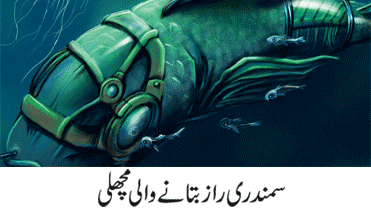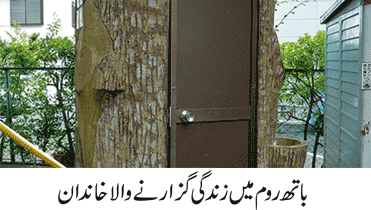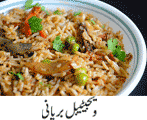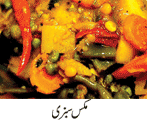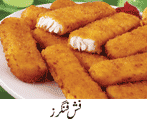Hadith About Taweezتعویذ، گنڈے کے بارے میں احادیث
Hadith about Wearing And Hanging Taweez/Amulets تعویذ پہننے یا لٹکانے کے بارے میں
'Eisa Ibn 'Abdur-Raman bin Abi Laila said: I entered upon 'Abdullah bin 'Ukaim Abu Mabad Al-Juhani to visit him, while he had Humrah. I said:'Why don't you hang something?' He said: 'Death is better than that. The Prophet (S.A.W) said: Whoever hangs something, he is entrusted to it.
Book: Jamia At Tirmidhi, Chapter: Medicine, Hadees No. 2072`Amr bin Shu`aib narrated from his father, from his grandfather, that the Messenger of Allah (ﷺ) said: “When one of you becomes frightened during sleep, then let him say: ‘I seek refuge in Allah’s Perfect Words from His anger, His punishment, and the evil of His creatures, from the whisperings of the Shayatin, and that they should come (A`ūdhu bikalimātillāhit-tāmmati min ghaḍabihī wa `iqābihī wa sharri `ibādih, wa min hamazātish-shayāṭīni wa an yaḥḍurūn).’ For verily, they shall not harm him.” He said: “So `Abdullah bin `Amr used to teach it to those of his children who attained maturity, and those of them who did not, he would write it on a sheet and then hang it around his neck.”
Book: Jamia At Tirmidhi, Chapter: Supplication, Hadees No. 3528Narrated Abdullah ibn Masud: The Prophet of Allah صلی اللہ علیہ وسلم disliked ten things: Yellow colouring, meaning khaluq, dyeing grey hair, trailing the lower garment, wearing a gold signet-ring, a woman decking herself before people who are not within the prohibited degrees, throwing dice, using spells except with the Muawwidhatan, wearing amulets, withdrawing the penis before the semen is discharged, in the case of a woman who is wife or not a wife, and having intercourse with a woman who is suckling a child; but he did not declare them to be prohibited. Abu Dawud said: Only the transmitters of Basrah have transmitted this tradition.
Book: Sunan Abu Dawood, Chapter: Signet-Rings (Kitab Al-Khatam), Hadees No. 4222عیسیٰ بن عبدالرحمٰن کہتے ہیں کہ میں عبداللہ بن عکیم ابومعبد جہنی کے ہاں ان کی عیادت کرنے گیا، ان کو «حمرة» کا مرض تھا ۱؎ ہم نے کہا: کوئی تعویذ وغیرہ کیوں نہیں لٹکا لیتے ہیں؟ انہوں نے کہا: موت اس سے زیادہ قریب ہے، نبی اکرم صلی اللہ علیہ وسلم نے فرمایا: ”جس نے کوئی چیز لٹکائی وہ اسی کے سپرد کر دیا گیا“ ۲؎۔ امام ترمذی کہتے ہیں: عبداللہ بن عکیم کی حدیث کو ہم صرف محمد بن عبدالرحمٰن بن ابی لیلیٰ کی روایت سے جانتے ہیں، عبداللہ بن عکیم نے نبی اکرم صلی اللہ علیہ وسلم سے حدیث نہیں سنی ہے لیکن وہ آپ صلی اللہ علیہ وسلم کے زمانہ میں تھے، وہ کہتے تھے: رسول اللہ صلی اللہ علیہ وسلم نے ہم لوگوں کے پاس لکھ کر بھیجا ہے۔
Book: Jamia At Tirmidhi, Chapter: Medicine, Hadees No. 2072عبداللہ بن عمرو بن العاص رضی الله عنہما سے روایت ہے کہ رسول اللہ صلی اللہ علیہ وسلم نے فرمایا: ”جب تم میں سے کوئی نیند میں ڈر جائے تو ( یہ دعا ) پڑھے: «أعوذ بكلمات الله التامات من غضبه وعقابه وشر عباده ومن همزات الشياطين وأن يحضرون» ”میں پناہ مانگتا ہوں اللہ کے کامل و جامع کلموں کے ذریعہ اللہ کے غضب، اللہ کے عذاب اور اللہ کے بندوں کے شر و فساد اور شیاطین کے وسوسوں سے اور اس بات سے کہ وہ ہمارے پاس آئیں““۔ ( یہ دعا پڑھنے سے ) یہ پریشان کن خواب اسے کچھ نقصان نہ پہنچا سکے گا۔ ( تاکہ وہ اسے یاد کر لیں، نہ کہ تعویذ کے طور پر ) عبداللہ بن عمر رضی الله عنہما اپنے بالغ بچوں کو یہ دعا سکھا دیتے تھے، اور جو بچے نابالغ ہوتے تھے ان کے لیے یہ دعا کاغذ پر لکھ کر ان کے گلے میں لٹکا دیتے تھے ۱؎۔ امام ترمذی کہتے ہیں: یہ حدیث حسن غریب ہے۔
Book: Jamia At Tirmidhi, Chapter: Supplication, Hadees No. 3528عبداللہ بن مسعود رضی اللہ عنہ کہتے تھے کہ اللہ کے نبی کریم صلی اللہ علیہ وسلم دس خصلتیں ناپسند فرماتے تھے، زردی یعنی خلوق کو، سفید بالوں کے تبدیل کرنے کو ۱؎، تہ بند ٹخنوں سے نیچے لٹکانے کو، سونے کی انگوٹھی پہننے کو، بے موقع و محل اجنبیوں کے سامنے عورتوں کے زیب و زینت کے ساتھ اور بن ٹھن کر نکلنے کو، شطرنج کھیلنے کو، معوذات کے علاوہ سے جھاڑ پھونک کرنے کو، تعویذ اور گنڈے لٹکانے کو اور ناجائز جگہ منی ڈالنے کو، اور بچے کے فساد کو یعنی اسے کمزور کرنے کو اس طرح پر کہ ایام رضاعت میں اس کی ماں سے صحبت کرے البتہ اسے حرام نہیں ٹھہراتے تھے۔ ابوداؤد کہتے ہیں: اہل بصرہ اس حدیث کی سند میں منفرد ہیں، واللہ اعلم
Book: Sunan Abu Dawood, Chapter: Signet-Rings (Kitab Al-Khatam), Hadees No. 4222حَدَّثَنَا مُحَمَّدُ بْنُ مَدُّوَيْهِ، حَدَّثَنَا عُبَيْدُ اللَّهِ بْنُ مُوسَى، عَنْ مُحَمَّدِ بْنِ عَبْدِ الرَّحْمَنِ بْنِ أَبِي لَيْلَى، عَنْ عِيسَى أَخِيهِ، قَالَ: دَخَلْتُ عَلَى عَبْدِ اللَّهِ بْنِ عُكَيْمٍ أَبِي مَعْبَدِ الْجُهَنِيِّ أَعُودُهُ وَبِهِ حُمْرَةٌ، فَقُلْنَا: أَلَا تُعَلِّقُ شَيْئًا، قَالَ: الْمَوْتُ أَقْرَبُ مِنْ ذَلِكَ، قَالَ النَّبِيُّ صَلَّى اللَّهُ عَلَيْهِ وَسَلَّمَ: مَنْ تَعَلَّقَ شَيْئًا وُكِلَ إِلَيْهِ ، قَالَ أَبُو عِيسَى: وَحَدِيثُ عَبْدِ اللَّهِ بْنِ عُكَيْمٍ إِنَّمَا نَعْرِفُهُ مِنْ حَدِيثِ مُحَمَّدِ بْنِ عَبْدِ الرَّحْمَنِ بْنِ أَبِي لَيْلَى، وَعَبْدُ اللَّهِ بْنُ عُكَيْمٍ لَمْ يَسْمَعْ مِنَ النَّبِيِّ صَلَّى اللَّهُ عَلَيْهِ وَسَلَّمَ، وَكَانَ فِي زَمَنِ النَّبِيِّ صَلَّى اللَّهُ عَلَيْهِ وَسَلَّمَ يَقُولُ: كَتَبَ إِلَيْنَا رَسُولُ اللَّهِ صَلَّى اللَّهُ عَلَيْهِ وَسَلَّمَ،
Book: Jamia At Tirmidhi, Chapter: Medicine, Hadees No. 2072حَدَّثَنَا عَلِيُّ بْنُ حُجْرٍ، حَدَّثَنَا إِسْمَاعِيل بْنُ عَيَّاشٍ، عَنْ مُحَمَّدِ بْنِ إِسْحَاق، عَنْ عَمْرِو بْنِ شُعَيْبٍ، عَنْ أَبِيهِ، عَنْ جَدِّهِ، أَنّ رَسُولَ اللَّهِ صَلَّى اللَّهُ عَلَيْهِ وَسَلَّمَ، قَالَ: إِذَا فَزِعَ أَحَدُكُمْ فِي النَّوْمِ فَلْيَقُلْ أَعُوذُ بِكَلِمَاتِ اللَّهِ التَّامَّاتِ مِنْ غَضَبِهِ وَعِقَابِهِ وَشَرِّ عِبَادِهِ وَمِنْ هَمَزَاتِ الشَّيَاطِينِ وَأَنْ يَحْضُرُونِ، فَإِنَّهَا لَنْ تَضُرَّهُ ، قَالَ: وَكَانَ عَبْدُ اللَّهِ بْنُ عَمْروٍ يُلَقِّنُهَا مَنْ بَلَغَ مِنْ وَلَدِهِ وَمَنْ لَمْ يَبْلُغْ مِنْهُمْ كَتَبَهَا فِي صَكٍّ ثُمَّ عَلَّقَهَا فِي عُنُقِهِ. قَالَ أَبُو عِيسَى: هَذَا حَدِيثٌ حَسَنٌ غَرِيبٌ.
Book: Jamia At Tirmidhi, Chapter: Supplication, Hadees No. 3528حَدَّثَنَا مُسَدَّدٌ، حَدَّثَنَا الْمُعْتَمِرُ، قَالَ: سَمِعْتُ الرُّكَيْنَ بْنَ الرَّبِيعِ يُحَدِّثُ، عَنِ الْقَاسِمِ بْنِ حَسَّانَ، عَنْ عَبْدِ الرَّحْمَنِ بْنِ حَرْمَلَةَ، أَنَّ ابْنَ مَسْعُودٍ كَانَ يَقُولُ: كَانَ نَبِيُّ اللَّهِ صَلَّى اللَّهُ عَلَيْهِ وَسَلَّمَ يَكْرَهُ عَشْرَ خِلَالٍ الصُّفْرَةَ يَعْنِي الْخَلُوقَ، وَتَغْيِيرَ الشَّيْبِ وَجَرَّ الْإِزَارِ وَالتَّخَتُّمَ بِالذَّهَبِ وَالتَّبَرُّجَ بِالزِّينَةِ لِغَيْرِ مَحَلِّهَا وَالضَّرْبَ بِالْكِعَابِ وَالرُّقَى إِلَّا بِالْمُعَوِّذَاتِ وَعَقْدَ التَّمَائِمِ وَعَزْلَ الْمَاءِ لِغَيْرِ أَوْ غَيْرَ مَحَلِّهِ أَوْ عَنْ مَحَلِّهِ وَفَسَادَ الصَّبِيِّ غَيْرَ مُحَرِّمِهِ ، قَالَ أَبُو دَاوُد: انْفَرَدَ بِإِسْنَادِ هَذَا الْحَدِيثِ أَهْلُ الْبَصْرَةِ وَاللَّهُ أَعْلَمُ.
Book: Sunan Abu Dawood, Chapter: Signet-Rings (Kitab Al-Khatam), Hadees No. 4222A taweez is an amulet or locket usually containing verses from the Noble Quran or the Islamic prayers or symbols and worn around neck or some other part of the body. People who consider the practice of wearing Taweez to be permissible believe that it wards off evil spirits, brings good luck, and entitles the wearer for Allah’s blessings.
Is this belief or practice valid in Islam?
Does a Taweez really do away back luck and bring good luck?
While there is no direct mention of Taweez in the Holy Scripture, we’ll have to look for its validity in the Hadith Sharif. There is also a Sahih Hadith about Taweez.
Sahih Hadith about Taweez:
According to a Sahih Hadith quoted in Sunan Abu Dawood, (Hadees No. 4222, Chapter: Signet Rings) Allah’s Apostle (May peace and blessings of Allah be upon Him) said that He (ﷺ) disliked ten things, one of them being ‘wearing amulets (Taweez)’.
Why do people still consider an amulet to be permissible? Actually, as quoted in Hadees No. 3528, Jamia At Tirmidhi, Chapter: Supplication, Allah’s Rasool (ﷺ) taught a Dua to get rid of a bad dream and get protection from Allah if such a thing occurs. So, Hazrat Abdullah bin Amr (RA) used to teach this Dua (prayer) to those of his children who were mature (Baligh, Adult). And for those who were immature (Na Baligh), he (RA) wrote it on a sheet and hung it around their neck. But this Hadees has been declared ‘weak’.
Here you can read multiple Ahadees about Taweez, each taken from one of the Saha e Sitta (the 6 most authentic books of Ahadees).





